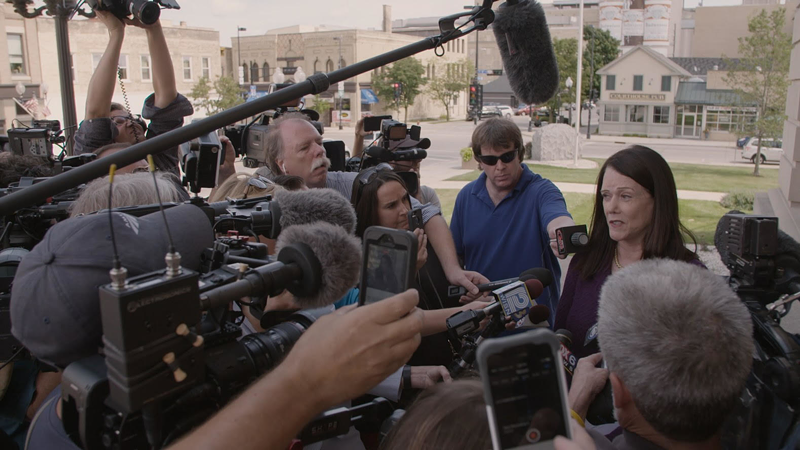It was the epitome of binge-watching fare before the term was ubiquitous. Most of us outside Manitowoc County, Wis., had never heard of the Halbach murder, let alone Avery’s unique position — he previously served 18 years in prison for another crime he didn’t commit and was later found innocent due to DNA evidence.
Engrossed in this true-crime saga, many viewers like myself followed the news surrounding this case as it played out in real time in the years that followed. So when a second season following the same subject was announced, I wondered how they could possibly fill 10 episodes with new information and even try to top Season 1. After all (spoiler alert for those not following the case), Avery and Dassey remain behind bars today.
Season 2 does tread familiar territory, with early episodes serving as a refresher while setting up new developments. In fact, while much of this season’s content comes from the couple of years since the first one aired, there’s a lot from before 2015. With the first season filmed over the course of a decade, there was plenty of footage that didn’t make the cut the first time around, and some of that finds its place here.
The most significant new player and true star of this season is Avery’s new attorney Kathleen Zellner, who started representing him in January 2016 shortly after the original series premiered. A Texas born, pistol-packing straight-shooter based in Chicago, Zellner is a heavy hitter when it comes to exonerating the falsely accused. In 23 years, she has helped overturn 19 wrongful convictions — more than any private attorney in America. She gives Season 1 lawyer baes Dean Strang and Jerry Buting a run for their money.
In the 1990s, Zellner represented serial killer Larry Eyler, a death row inmate who confessed additional murders to her before dying in prison. After that experience, she shifted her focus to helping the falsely accused. And if Zellner does take on your case, you better be innocent. “If you are guilty,” she says in the show, “I will do a way better job of finding out you are guilty than any prosecutor could.” I don’t doubt it.
Critics would say she finds a tiny arbitrary fray in a case and tugs until it’s completely unraveled. The innocent convicts she helped free might say she saved their lives.
Unlike any legal representative we’ve seen in the series, she is truly dedicated to not only overturning Avery’s case, but also finding out who actually killed Halbach. She does have some solid theories — but let’s just say they won’t please everyone in the Avery family.
As for Dassey, he has new representation, too, coming from Northwestern University’s Center on Wrongful Convictions of Youth. His team works relentlessly to argue that, as an intellectually disabled minor, he was coerced into a false confession that has led to a life sentence.
Making a Murderer has been criticized for not being a true documentary — that it’s too biased in favor of Avery. Filmmakers Laura Ricciardi and Moira Demos acknowledge this in the new season, and every episode ends with a lengthy list of people who declined to be involved with the series or didn’t respond to requests.
This season is far more intriguing than I imagined, but it’s also heartbreaking. We hear Dassey call home, full of hope, discussing his plans for his first meal on the outside, when we know that might not ever happen. We watch Avery’s parents struggle with aging and health problems, concerned that they won’t be around if he ever does get released. Even if these guys were complicit, the hand they were dealt is far from just. Meanwhile, Halbach’s family may never know what happened to Teresa.
Still, there’s a noble sense of hope in Avery as we hear him discuss, in a call from prison, his refusal to grow bitter. With all the odds stacked against him, he continues to fight.
Contact Jac Kern: @jackern


